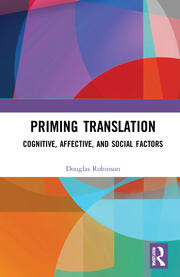

Most ebook files are in PDF format, so you can easily read them using various software such as Foxit Reader or directly on the Google Chrome browser.
Some ebook files are released by publishers in other formats such as .awz, .mobi, .epub, .fb2, etc. You may need to install specific software to read these formats on mobile/PC, such as Calibre.
Please read the tutorial at this link: https://ebookbell.com/faq
We offer FREE conversion to the popular formats you request; however, this may take some time. Therefore, right after payment, please email us, and we will try to provide the service as quickly as possible.
For some exceptional file formats or broken links (if any), please refrain from opening any disputes. Instead, email us first, and we will try to assist within a maximum of 6 hours.
EbookBell Team

4.1
50 reviewsThis innovative volume builds on Michael S. Gazzaniga’s Interpreter Theory toward radically expanding the theoretical and methodological scope of translational priming research.
Gazzaniga’s Interpreter Theory, based on empirical studies carried out with split-brain patients, argues for the Left-Brain Interpreter (LBI), a module in the brain’s left hemisphere that seeks to make sense of their world based on available evidence—and, where no evidence is available, primed by past memories, confabulates coherence. The volume unpacks this idea in translation research to test whether translators are primed to confabulate by the LBI in their own work. Robinson investigates existing empirical research to test hypotheses on the translational links between the LBI and cognitive priming, the Right-Brain Interpreter and affective priming, and the Collective Full-Brain Interpreter and social priming.
Taken together, the book seeks to open translational priming studies up to the full range of cognitive, affective, and social primes and to prime cognitive translation researchers to implement this broader dynamic in future research.
This book will be of interest to scholars in translation and interpreting studies, especially those working in cognitive translation and interpreting studies.